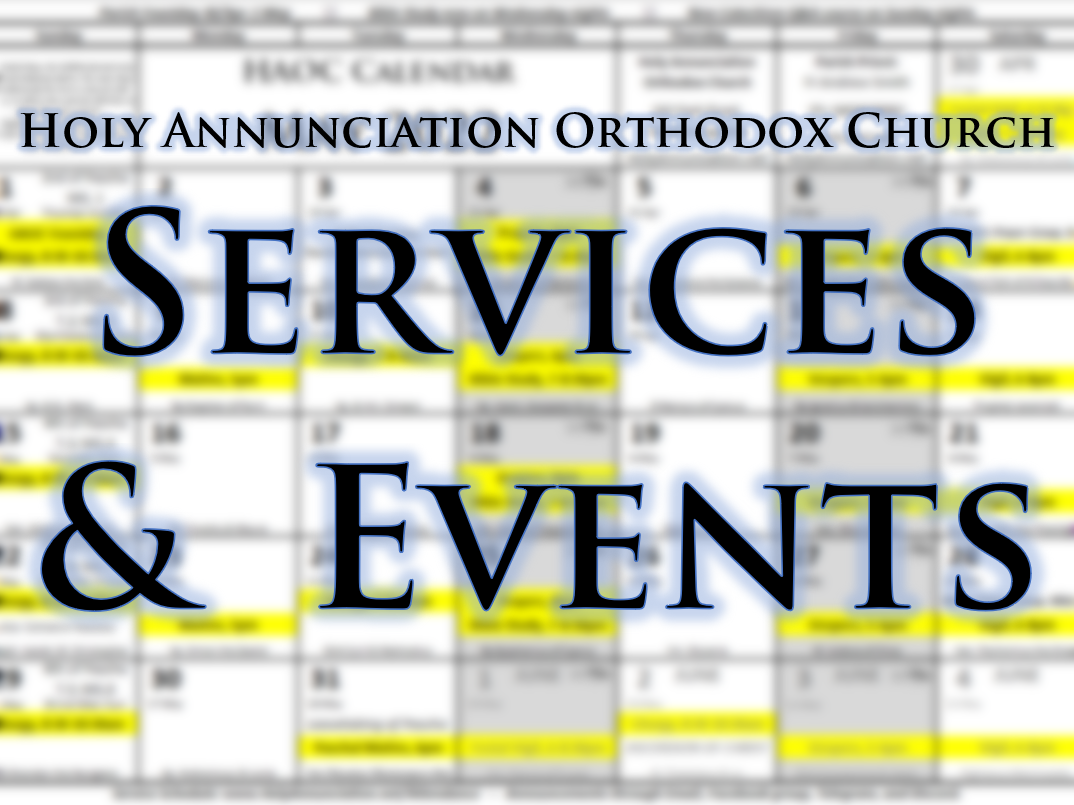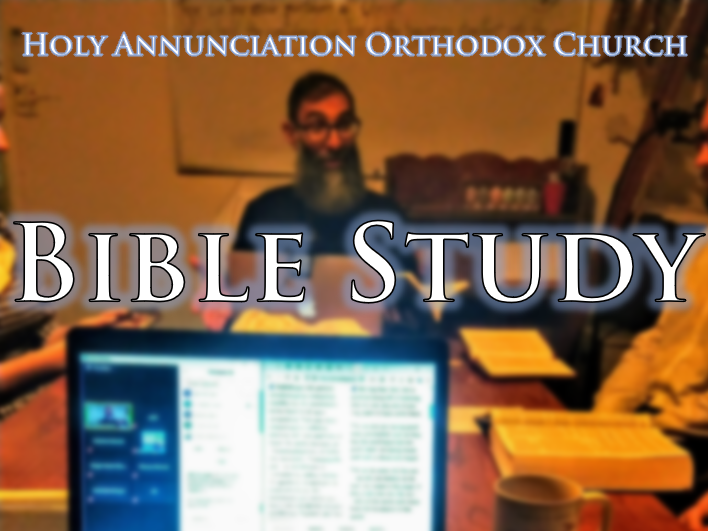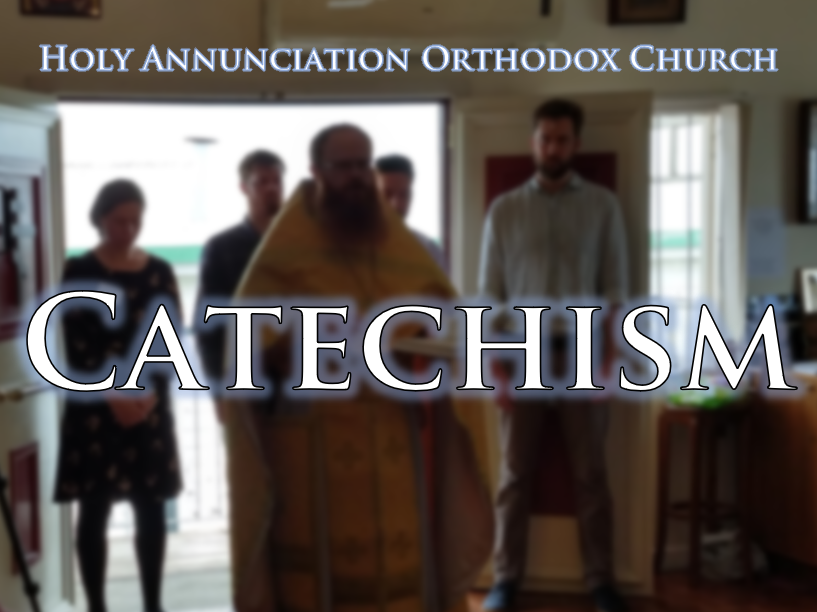Resource Page:
Death and Dying in the Orthodox Church
End-of-Life Matters to Consider
Each Orthodox Christian should have a Will. In this will, it should clearly state details about funeral arrangements - such as, which parish it should take place, and where one is is to be buried.
The Ill and the Housebound
There are a variety of prayers for the sick. A person may request to be commemorated at the Divine Liturgy. They may also request the priest pray the Prayer Service ('Moleben') for the Sick with them. (There are also prayers for surgery and some specific ailments - please discuss this further with Fr Andrew).
For more severe illness, a person may request Unction. This can be celebrated in the church, the home or the hospital.
If a person is unable to leave where they are, they may request the priest visit for Communion of the Sick. This is typically administered in the home or the hospital.
If a person is near-death, there are a few options. While we don't have 'the last rites', we do have three options. Firstly, if the person is cognisant and can swallow, they may be able to request Communion of the Sick. Secondly, if the person wishes healing, we can serve Unction. Lastly, we can serve a prayer service ('Canon'), either 'for the dying' or 'for the parting of the soul from the body'.
Please contact Fr Andrew directly if any of these are desired.
Funerals and Burials
The purpose of an Orthodox Christian funeral service is to pray to God for the forgiveness of a newly-departed person's sins, to pray for their acceptance into the Kingdom of Heaven, and to pray in the physical presence of the newly-departed for the last time.
Many of the procedures in a funeral service are set in ecclesiastical practice or state law. There are a number of things that will need to be addressed - commonly, these include the date and time of the funeral, at which parish the funeral will be held at, where the burial will occur, what's on the burial cross or tombstone. These are often organised through a funeral director. A wake may also be organised. In addition, the memorials for the Third Day and the Ninth Day should be arranged (see below), and, the parish will also need to be advised an approximate number of attendees, so that candles may be arranged.
An option is for other services to be served. The most common is to serve the funeral service (approx. 1½hrs), followed by the burial. However, some will wish to serve other services, including the Parastas vigil on the evening before (approx. 2½hrs), and the Liturgy in the morning (approx. 2hrs), followed by the funeral (1¼hrs). Some will request that Forty Days of Liturgies be celebrated, and provide resources for this purpose. The burial service that follows a funeral is brief, and happens at the gravesite.
There are a number of items used in an Orthodox funeral service. Candles symbolise Christ as the Light of the world; a paper band with the Trisagion symbolises a crown of victory; incense offered throughout the service represent our prayers ascending to God; a cup of earth is a reminder of what we return to; and, Kollyva or Kutiya is typically offered, a remembrance that it is by dying that we receive new life, sweetened by being near to Christ.
Some contemporary funeral practices are conventional, though not ecclesiastically required. These include mourners wearing black clothing, flowers, and a guest book. These may be arranged, or not, as the organisers of the funeral wish.
Orthodox funeral services are different: there is an open casket and a set service, and we hold candles throughout. There is no eulogy - indeed, aside from a possible sermon, the priest rarely addresses the congregation directly. We have the practice of the 'last kiss', a final farewell to the departed, and we do not permit cremation.
As our funeral services are not designed to function as a celebration of life or a time to reminiscing, we invite the organisers of a funeral to consider a wake after the burial, where these can be fulfilled.
Lastly, it is important to note that it is normal and natural to grieve at a funeral service - the service itself facilitates this grieving. We are frequently told that the service brings consolation and a sense of the value of the life of the newly-departed - that a person has been fully farewelled, with all due solemnity.
Memorials
The purpose of a Memorial service is to pray to God for the forgiveness of a person's sins and to pray for their acceptance into the Kingdom of Heaven.
Memorials are typically served on traditional anniversary dates. The most common are the ones nearest to repose - the Third Day, the Ninth Day, the Fortieth Day, and then three months, six months, one year, and three years. Other common anniversary dates are those connected to a 'Soul Saturday', as well as the Paschal Memorial ('Radonitsa'). At Holy Annunciation, we also often serve a memorial near Remembrance Day.
NB: There is some confusion about working out when the Third Day, Ninth Day and Fortieth Day prayers should be done. With these prayers, the day of death is included - that is, if a person reposed on Tuesday, then their Third Day memorial should be scheduled for Thursday.
There are some days a Memorial cannot be served, because of a heightened focus on the Resurrection - between Holy Thursday, Easter and Thomas Sunday, and, on any Sunday throughout the year.
There are a number of items used in an Orthodox memorial service. Candles symbolise Christ as the Light of the world; incense offered throughout the service represent our prayers ascending to God; and, Kollyva or Kutiya is typically offered, a remembrance that it is by dying that we receive new life, sweetened by being near to Christ.
To arrange a memorial service, please speak with Fr Andrew directly.




